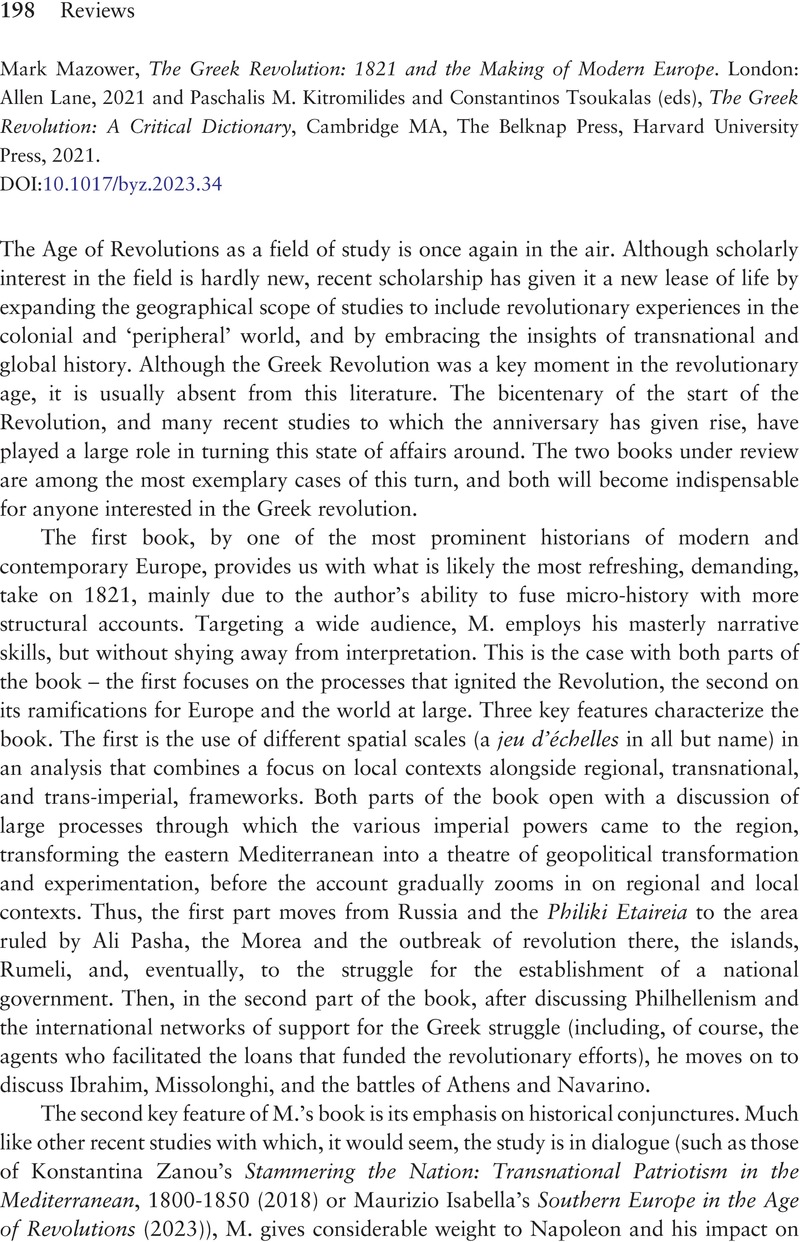No CrossRef data available.
Article contents
Mark Mazower, The Greek Revolution: 1821 and the Making of Modern Europe. London: Allen Lane, 2021 and Paschalis M. Kitromilides and Constantinos Tsoukalas (eds), The Greek Revolution: A Critical Dictionary, Cambridge MA, The Belknap Press, Harvard University Press, 2021.
Review products
Mark Mazower, The Greek Revolution: 1821 and the Making of Modern Europe. London: Allen Lane, 2021 and Paschalis M. Kitromilides and Constantinos Tsoukalas (eds), The Greek Revolution: A Critical Dictionary, Cambridge MA, The Belknap Press, Harvard University Press, 2021.
Published online by Cambridge University Press: 22 December 2023
Abstract
An abstract is not available for this content so a preview has been provided. Please use the Get access link above for information on how to access this content.

- Type
- Review
- Information
- Copyright
- Copyright © The Author(s), 2023. Published by Cambridge University Press on behalf of the Centre for Byzantine, Ottoman and Modern Greek Studies, University of Birmingham
References
1 Mazower translates ‘γένος’ as ‘race’ without explanation.


